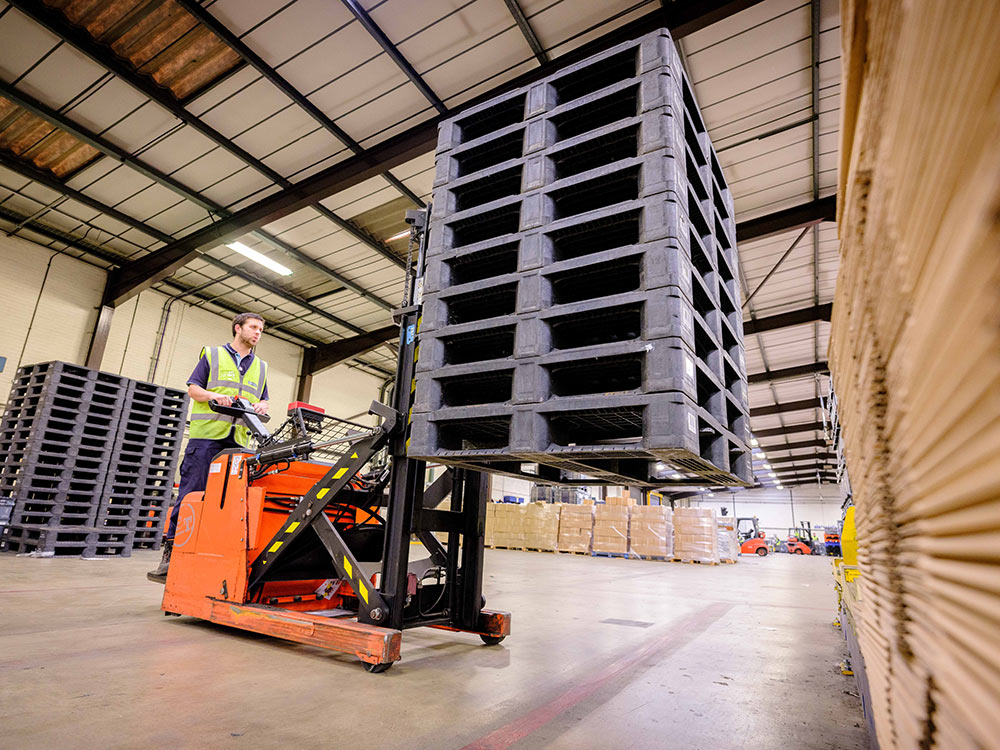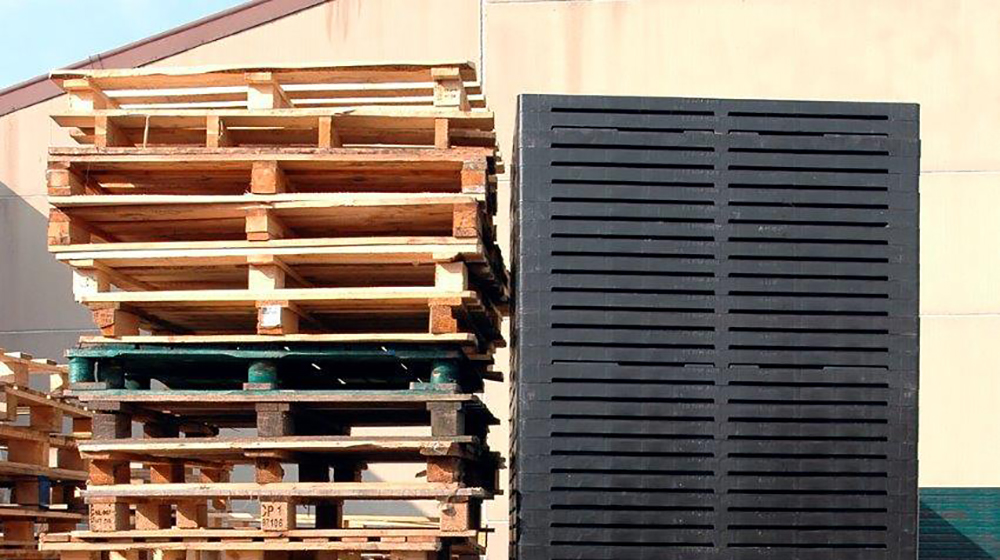Your cart is currently empty!
Six reasons why plastic pallets reign supreme in today’s supply chain
At Goplasticpallets.com, we are passionate about plastic.
As the plastic pallet experts, we have been championing plastic pallets since we started in 2001. We know just how useful plastic is for making pallets, and when you consider all aspects of a pallet, such as its structure, weight, and lifespan, plastic will always be better than wood.
Here, we take a closer look at the six reasons why plastic pallets reign supreme in today’s supply chain.
Unrivalled performance and strength
Plastic pallets offer an unrivalled performance and strength that cannot be matched by a wooden pallet. Plastic pallets are manufactured under enormous pressure and to a precise size specification. This precise process gives the pallet incredible strength, dimensional consistency, and the ability to be used repeatedly. This enables the pallet to work perfectly time and again for at least 10 years giving the user unrivalled performance.
Wooden pallets on the other hand need to be replaced much more frequently. By its nature, wood shrinks and deteriorates over time. When this happens to a wooden pallet, nails lose their grip and seriously weakens the pallet’s structure, leading the pallet to fail. Broken parts are a serious concern for users as not only can they damage goods, but if a wooden pallet was to fail in a high bay racking system, it can put lives at risk.

Lightweight means lower fuel costs
Generally, a plastic pallet is lighter than a wooden pallet – almost by a third. Typically, a plastic pallet weighs around 20-22kg, whereas a wooden pallet can weigh around 28-30kg. The weight of a pallet can be a big consideration for organisations who must transport goods. Lighter plastic pallets can save money when transporting goods by road, sea, and air. This is particularly beneficial with shipping and fuel costs now at an all-time high. Lighter plastic pallets also reduce the risk of injury to operatives when handling.
Hygienic and easy to clean
In industries where hygiene is paramount, like food manufacturing and pharmaceuticals, plastic pallets are the only option.
Wood is naturally porous and absorbs water over time leading to a build-up of mould and mildew. This build-up can cause serious health problems if passed on to the end user. But with plastic pallets, there are no contamination issues. A plastic pallet’s smooth surface does not trap dirt or absorb liquid, and they can easily be washed and dried when needed to maintain hygiene.
Incredibly long lifespan
The longevity of a plastic pallet is another outstanding benefit. Plastic pallets are designed to last. The lifespan of a plastic pallet is 10 times longer (minimum) than a wooden pallet. During this time, a plastic pallet will require very little maintenance. On the flipside, a wooden pallet will typically only last 11 trips before it needs maintenance or becomes unusable.
Put simply, for every one plastic pallet that lasts you 10 years, you will go through at least nine wooden pallets.
Sustainable and fully recyclable
The idea that a wooden pallet must be better for the environment is simply not the case. Wooden pallet manufacturing can be linked to unnecessary deforestation. On average, one tree makes just four wooden pallets. This high turnover of resource is unsustainable, particularly when you consider the amount of time it takes for a tree to fully grow.
Depending on the timber, wooden pallets can vary in quality and lifespan. And then there is the question about what to do with them once they are no longer needed. At the end of their short life, old wooden pallets are at best processed into chips for animal bedding and gardens, or at worst burnt on bonfires.
In contrast, all of the plastic pallets, boxes, containers and trays we supply are 100% recyclable once they are no longer needed. In 2019, we pioneered the UK plastic pallet industry’s first plastic pallet recycling scheme, making a commitment to recycle all of the plastic products we supply.
We are committed to driving the circular economy and helping our customers to create a sustainable supply chain. Currently, 93% of our plastic pallets are made entirely from recycled plastic. We eat into the mountain of plastic that has already been created to make use of the valuable plastic resource that already exists. Every 1 tonne of recycled plastic saves around 2 tonnes of CO2 emissions, 5,774 kilowatt hours of energy, 16.3 barrels of oil, 98 million BTUs of energy and 22 cubic meters of landfill.
Surely, buying a plastic pallet that lasts up to 10 years is much more sustainable than buying alternatives that need to be replaced far more frequently?

Fast return on investment
Then there is the cost. Where wooden pallets were once the most attractive option because of their low unit price, this is no longer the case. Although plastic pallets remain marginally more expensive per unit compared to wooden pallets, the price gap between the two is at the closest it has ever been.
The average price for a wooden pallet increased by over 35% in 2021 and, more recently, wooden pallet suppliers revealed that a further 35% increase was added in April 2022.
So, when the whole life cycle of each pallet is taken into account, it isn’t long before the plastic pallet begins to make a healthy return on your investment.
There is no doubt that plastic pallets have become a crucial part of today’s supply chain, offering unrivalled performance, sustainable benefits, and a long-term cost savings.
If you would like to experience the benefits of plastic pallets, please get in touch with one of our expert team today.
